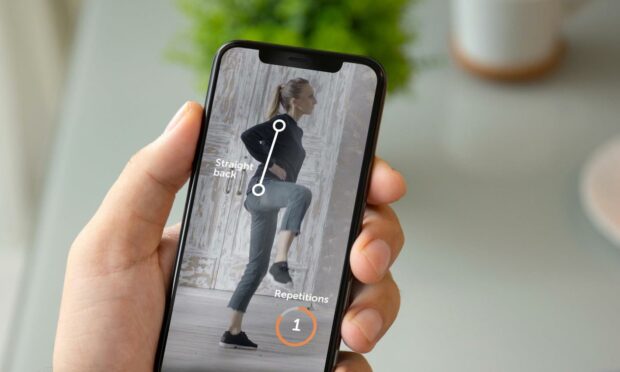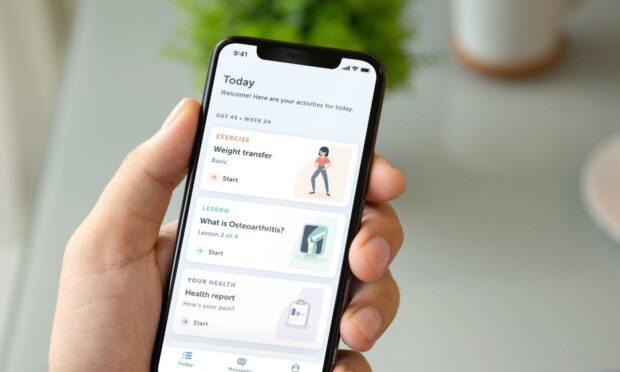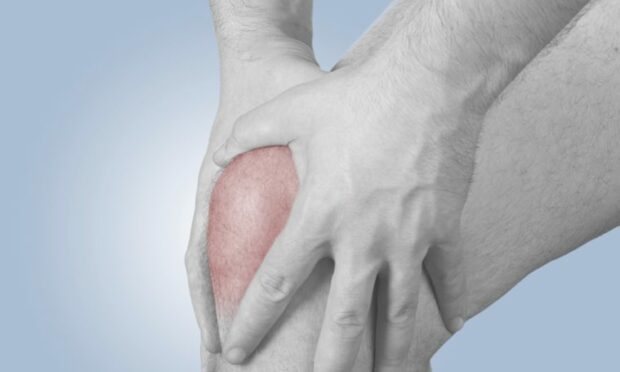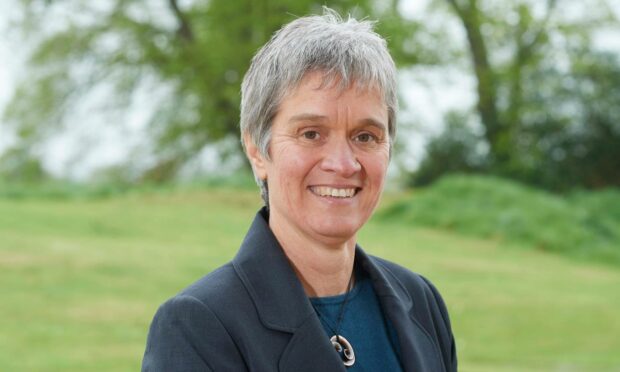Highland patients will be the first in Scotland to test a mobile phone app that could help treat chronic joint pain and reduce hospital waiting lists.
A six-month trial will see 100 people try out Joint Academy, a digital treatment app developed by a Swedish digital health company.
The app connects patients with a registered physiotherapist to provide information about chronic joint pain.
It encourages users to do five minutes of tailored exercises a day to help ease pain and restore movement.
Some patients decided they didn’t need surgery
A recent study by the University of Nottingham found that patients using the app reduced their pain by 41% after just six weeks.
The number who received traditional forms of therapy, including face-to-face care, was just 6%.
Previous research has also shown that some patients who used the Joint Academy app decided they no longer need surgery.
In addition, trials showed reductions in post-operation recovery times.
The first Scottish trial will involve researchers from the University of the Highlands and Islands, led by Professor Trish Gorely, and NHS Highland.
They will aim to evaluate how likely patients are to sign up for the programme, if they stay engaged throughout and if they feel the treatment helps their condition.
It is hoped it can help patients on the waiting list for knee and hip operations.
Prof Gorely said: “We are excited about the opportunity to work with NHS Highland and Joint Academy to trial this innovative treatment.
“The impacts of the Covid-19 pandemic mean that many operations have been delayed.
“This initiative could help to provide a possible solution for patients who are experiencing pain and mobility issues.
Covid has delayed operations
“We are grateful to Highlands and Islands Enterprise for introducing us to Joint Academy and are inspired by the difference the treatment could make to people across the Highlands and beyond.”
James Beastall, consultant orthopaedic surgeon with NHS Highland, said: “As a result of the pandemic, there are large numbers of people who are waiting patiently in Highland for surgery to reduce the pain they have from their arthritic joints.
“Some of these patients have now been waiting for two years.”
He said even a short period of exercise every day can improve physical and mental wellbeing.
“We are very excited about the opportunity to work with Joint Academy in this fascinating project and hope that it can do something to ease suffering for some of our patients.”
The trial is welcomed by UK Government Minister for Scotland Iain Stewart.
He said: “The pandemic has shown how much we can achieve with new technologies, especially in the field of health.
“This pioneering treatment has the potential to dramatically improve the lives of patients and help our NHS to deliver quality care.
“The UK Government is investing £9 million in life sciences innovation at the University of the Highlands and Islands as part of our £1.7 billion investment in levelling-up across Scotland.”
Most patients say pain is eased within six weeks
Joint Academy is already the most common way to treat chronic joint pain in Sweden.
While there are specific criteria patients need to meet to take part, more than 70,000 have started the treatment, with 85% saying their pain is reduced within just six weeks.
The study is supported by funding given to the university through the Inverness and Highlands City Region Deal.
Asif Dewan, UK managing director at Joint Academy, said: “Making a significant dent in the hospital waiting lists will require public-private partnerships to a greater extent and we’re thrilled to now be able to offer our treatment to NHS patients.
“Every month, hundreds of patients change their mind about having surgery while they’re in our treatment.
“This is a win not just for the individual patient, but for the healthcare system at large.
“Our hope is that this trial will help the participating patients and lead to more conversations with the NHS about how we can offer the treatment to everyone in the UK who needs it.”



